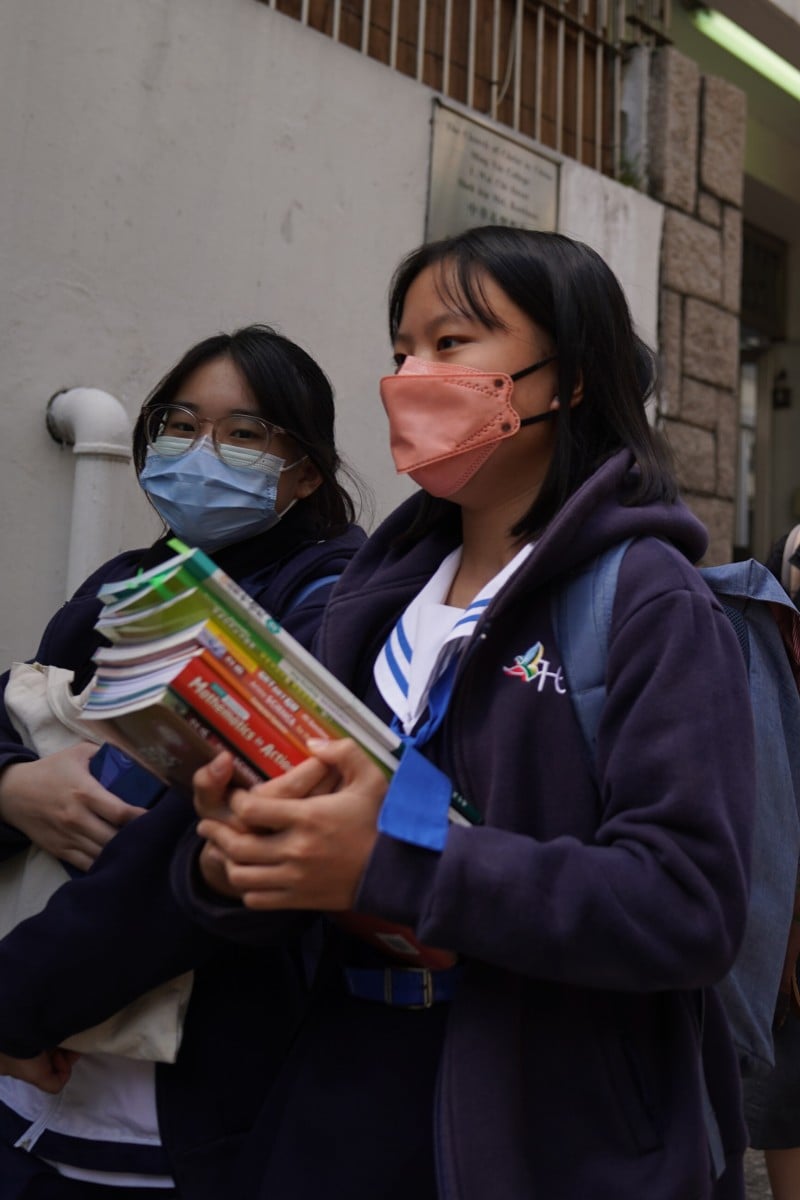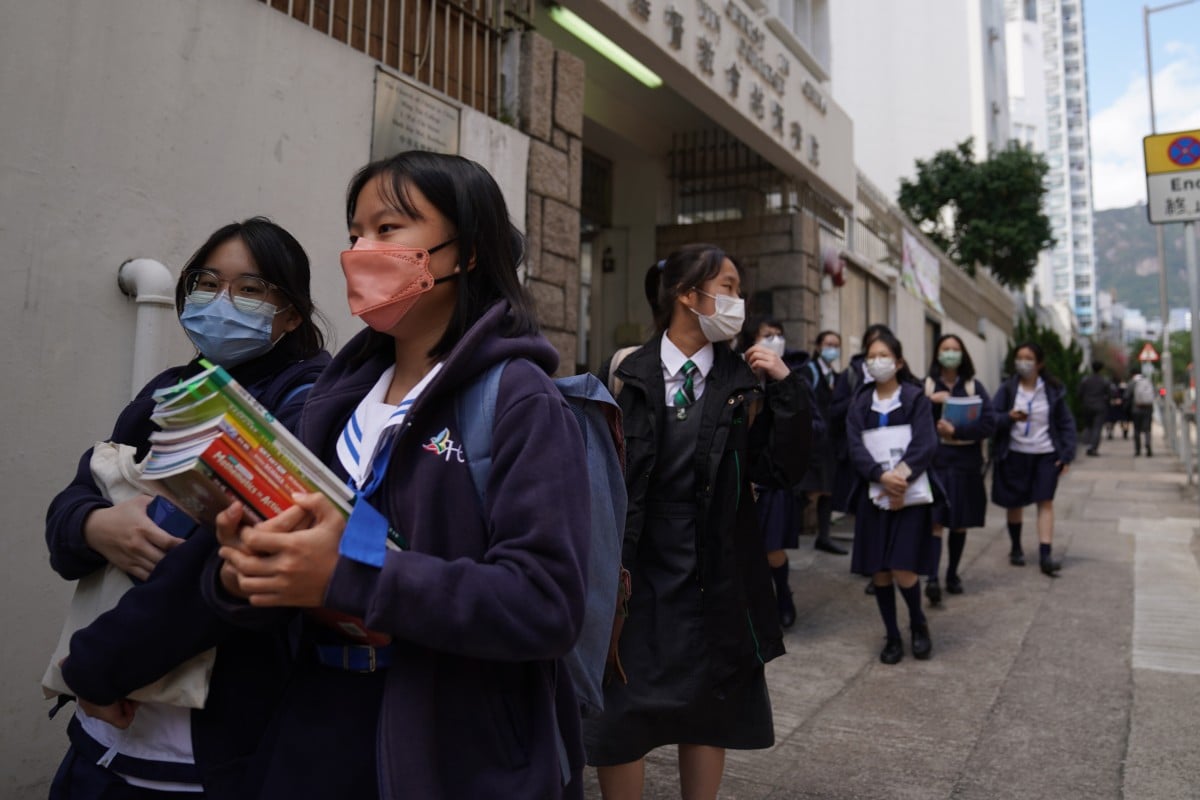
Your Voice: Hong Kong youth need more support; what we can do about plastic pollution (long letters)
- Three students explain what the city should do if it wants to improve the mental health of its young people
- Another reader shares ideas for how restaurants, consumers and the government can combat plastic waste
 Many young people in Hong Kong face mental health issues but do not have the resources to get help. Photo: Sam Tsang
Many young people in Hong Kong face mental health issues but do not have the resources to get help. Photo: Sam TsangHave something to say? Send us a letter using this Google form.
Children in Hong Kong deserve stress-free lives
Carolyn Ng, German Swiss International School; Vincy Choi, St Paul’s Secondary School; Anissa Ko, St Paul’s Secondary School
An increasing number of students in Hong Kong are suffering from mental health issues, such as depression because of the ultra-competitive environment in schools. Sadly, schools do not provide proper support for their pupils.
An event called “Beginning from Listening: Conference for Hong Kong Children and Teenagers” was recently held to discuss this important problem. It was co-organised by Saving the Children and Hong Kong Committee on Children’s Rights.
During the two-hour discussion, we, as child ambassadors, put forward some ideas aimed at tackling key issues.
Hong Kong students showing signs of depression due to stress over new school year
We believe it is important to include mental health education in the school curriculum. Given the lack of mental health support in schools, the curriculum can focus on how to relieve stress among students and show them the best way to handle their emotions.
Schools can also teach students stress management skills and organise activities such as lunchtime concerts and meditation sessions. Organising social media campaigns on Instagram, for example, could be another way to spread awareness.
Hong Kong students are under immense pressure because they take part in extracurricular activities, apart from having to finish their homework and revision. Along with the academic stress, students also feel anxious about maintaining relationships with their families, friends, and teachers.
Psychologist explains why emotions should be a school subject
Then, there is bullying among students, some of whom are targeted because they are overweight. Others might be teased because of their race, religion or economic background.
Despite social media campaigns promoting self-love and body positivity, people still make fun of others for their appearance. Such behaviour can destroy a victim’s self-esteem, leading to mental health problems.
Being a multicultural city, Hong Kong has a large number of ethnic minority groups that face discrimination from their peers in an education system that fails to cater to their needs. Many ethnic minority students face problems in their studies because they cannot speak Cantonese or Mandarin fluently. Those who struggle academically should receive extra help from the government. We need to ensure a bright future for them.
The event helped enhance our knowledge about different aspects of children’s rights with regard to schools, family and society. We believe it is important that we apply what we learned in our daily lives and promote children’s rights in society.
Children of asylum seekers struggle with Chinese lessons during Covid-19
Call to reduce single-use plastic
Andrea Cheung, Kennedy School
People should use less plastic because landfills are filling up. Scientists say tiny pieces of plastic, or “microplastics”, have been found in drinking water. Discarded plastic is killing marine life, threatening food security, and contributing to climate change. So what can we do to stop this?
For example, restaurants should hand out discount coupons to customers who bring their own containers or bottles. This will help businesses protect the environment and save money at the same time. Plus, they will get free publicity when a customer posts a picture of the discount coupon given by the eatery on social media. This would be a win-win situation for everyone.
Second, restaurants could consider offering more finger food on their menus. This means customers would use fewer plastic cutlery.
Third, eateries should not sell or buy food that comes in plastic containers which are usually thrown away by customers. It takes us about 15 minutes to finish the food and hundreds of years to restore the environment.
We consumers can also play a part in reducing our use of plastic, such as plastic bags, water bottles, straws, cups, and other items that are used once and then discarded. At present, just 9 per cent of plastic is recycled worldwide. Recycling helps keep plastics out of the ocean and reduces their impact on the environment.
Meet Hong Kong’s young climate activists striking every Friday
We can also organise beach clean-ups where we live. This is one of the most rewarding ways to fight plastic pollution. You and your family can simply go to the beach on the weekends and collect plastic waste.
We can also read about plastic pollution and help educate others, such as our family and friends, about the problem.
These actions alone cannot stop plastic pollution. We also need laws that make plastic producers realise their responsibilities and impose higher taxes on them.
Plastic pollution is a serious problem around the world. The important thing is that we all do something, no matter how small, to help save our planet.
